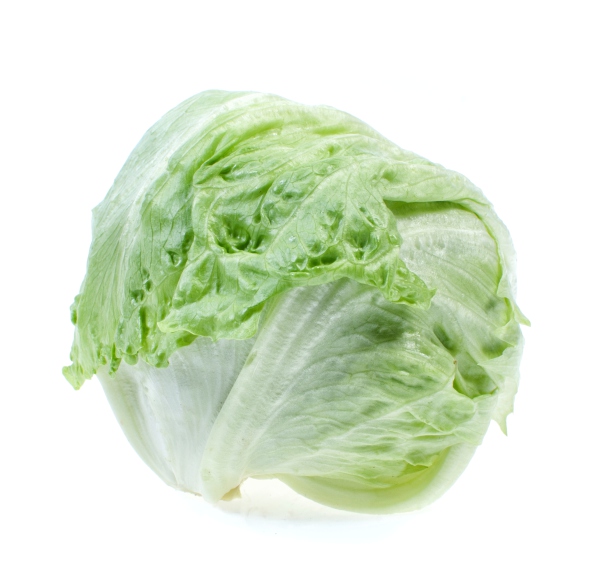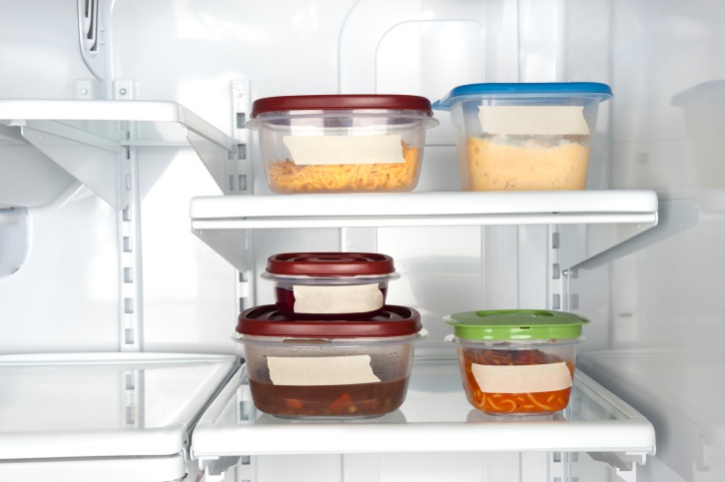
With the busyness of the day, it’s easy to overlook the loads of Tupperware filled with leftovers sitting on the shelves of your fridge. You may not think about tossing out the meat you wrapped in aluminum foil a week ago until that awful smell hits your nose when you open the refrigerator door.
The reality is that many of the foods you love have gone bad well before there’s a stench or before the green fuzz starts to grow on your cheese. With the cost of food on the rise, it can be tempting to keep foods months past the expiration date. Eating foods that have been inside your refrigerator for far too long can cause complications for your health.
Most people don’t have a problem with properly storing foods in the fridge, but the appropriate time to toss them is what causes debate. If you’re wondering what to toss and when, here are five common foods in your refrigerator that could be spoiling your health.
1. Deli Meat

Deli meat is a fan favorite because it gives you all the flavor and protein that you’d get in a freshly baked turkey or ham without all of the work. However, prepacked deli meat is highly processed and contains high amounts of sodium and nitrates to preserve it. Not only does deli meat increase your risks for hypertension, diabetes, heart disease, and cancer, but it may contain Listeria from cross-contamination during processing.
When to Ditch the Deli Meat
If you get deli meat cut fresh from the deli or you slice your own meat at home, you can keep it refrigerated for about five days. Unopened prepackage lunch meat can be stored in the refrigerator for up to two weeks, but once you eat the first slice, you have up to five days before it’s time to toss it.
RELATED: 9 Common Household Items You Didn’t Know Expired
2. Lettuce and Leafy Greens

Lettuce and leafy greens are a great way to pack your salads, wraps, and sandwiches with low-calorie nutrients. Romaine is a popular choice that provides Vitamin A, Vitamin K, and folate while kale provides Vitamins A, C, and K and calcium. As healthy as these options are, there’s a reason you frequently hear about them being recalled.
Low-growing lettuce and leafy greens are an easy target for E. coli to thrive. Contaminated water can easily reach the edible parts of the leaves of lettuce and leafy greens. Unlike other foods, lettuce and leafy greens are consumed without cooking so, it’s important to know when to throw them out.
Let Us Toss the Lettuce!
You may think that lettuce is safe to eat as long as it hasn’t started wilting, but if it’s past the date printed on the bag, you should toss it. A head of lettuce is good for up to three weeks in your refrigerator while a bag of spinach is good for about seven days. If you decide to pre-cut your lettuce, it’s only good for about 3 days. To preserve your lettuce, you shouldn’t wash it before you are ready to eat it.
3. Eggs

Whether you like them hard-boiled, scrambled, or sprinkled throughout your salad, eggs are a convenient source of protein, vitamins, and minerals. Eggs are often prepared ahead of time for those who like to eat on the go.
However, eating a bad egg puts you at risk for Salmonella poisoning, a type of food poisoning that can cause fever, cramps, diarrhea, and vomiting. Salmonella can grow on the shells, yolks, and whites of eggs.
It’s Ok to Throw the Eggs!
Knowing when to throw your eggs out can help you avoid several trips to the bathroom and in severe cases, a trip to the emergency room. A fresh carton of eggs can last for up to three weeks in your refrigerator while hard-boiled eggs can only last for a week. If an eggshell is cracked, you should discard it right away. If the egg carton has an expiration date, you should not keep your eggs past that time.
4. Cheese

For some, cheese is a special added ingredient for breakfast, lunch, and snacks. From sharp to mild, from parmesan to feta, cheese comes in a variety of flavors and textures to satisfy the tastebuds of all cheese lovers. Large portions of cheese are high in calories, but a serving size can give you a good amount of protein and calcium.
No matter how much you love cheese, eating moldy cheese is never a good idea. Mold can contain several bacteria that cause food poisonings such as E. Coli, Listeria, Salmonella, and Brucella. The mycotoxins found in mold have been linked to problems with the immune system and even cancer.
It’s Time to Chuck the Cheese!
Hard cheeses like parmesan and asiago can last in your refrigerator for up to four months unopened. After you slice or shred your first piece, it’s time to chuck it after three weeks. Soft cheeses like cream cheese and gorgonzola can last for up to three weeks before opening, but only two weeks after opening.
5. Left Over Meat

Undoubtedly, the price of some of your favorite meats have skyrocketed so, storing leftovers in your fridge seems like the logical thing to do. For meat-eaters, chicken, cuts of beef, pork, and fish are the main staples of protein, Vitamin B-12, omega-3s, and other nutrients.
Spoiled meat can contain salmonella, staphylococcus, E. coli, and clostridium which cause food poisoning symptoms and gastrointestinal issues if you consume it.
Lose the Left-Over Meat
If you have fresh chicken, fish, or turkey, you can keep it in the fridge for up to two days. Cooked poultry and fish can stay in your fridge for up to three days. Fresh beef, lamb, and pork can stay in the fridge for three days, but if it’s cooked, it can stay in the fridge for four days.
To avoid illnesses that come from eating food that has been in your fridge for too long, be sure to eat leftovers as soon as possible, read expiration dates, and clean out your refrigerator regularly. Eating the last slice or piece of anything isn’t worth your health. If you’re ever in doubt, you should toss it out!
 Dr. Candace McMillon-Dantley is on a mission to inspire and educate women to health. She is the creator of The Doc Knows, a health and wellness site for women and author of “Woman, Take Off Your Cape”. When she’s not health writing, she is health motivating and educating through presentations on healthy nutrition, self-care, and conditions of the body. Her experiences as a business owner, chiropractor, wife and mom of two resonate with all women. Connect with Dr. Candace on Instagram @drcandace.
Dr. Candace McMillon-Dantley is on a mission to inspire and educate women to health. She is the creator of The Doc Knows, a health and wellness site for women and author of “Woman, Take Off Your Cape”. When she’s not health writing, she is health motivating and educating through presentations on healthy nutrition, self-care, and conditions of the body. Her experiences as a business owner, chiropractor, wife and mom of two resonate with all women. Connect with Dr. Candace on Instagram @drcandace.









